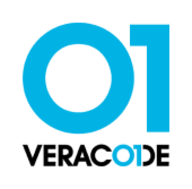

Veracode and Tenable.io Web Application Scanning are leading solutions in the web application security space. Users favor Tenable.io for its range of features, highlighting its value for the price.
Features: Veracode offers comprehensive vulnerability findings, detailed analysis, and seamless reporting. Tenable.io Web Application Scanning provides adaptive scanning capabilities, integration with existing security tools, and flexible feature variety, giving it a performance edge.
Room for Improvement: Veracode could enhance its reporting features, increase scan speed, and improve user interface. Improvements for Tenable.io Web Application Scanning include documentation clarity, dashboard functionalities, and enhanced customer support materials, although these areas are less critical to satisfaction.
Ease of Deployment and Customer Service: Veracode is known for seamless integration and helpful customer assistance. Tenable.io Web Application Scanning boasts a quick deployment process but garners mixed reviews on customer service reliability.
Pricing and ROI: Veracode has a high initial setup cost but offers good long-term ROI through effective risk management. Tenable.io Web Application Scanning provides competitive pricing with a favorable ROI, largely due to its robust features, making its cost-effectiveness compelling.


Tenable.io Web Application Scanning safely, accurately and automatically scans your web applications, providing deep visibility into vulnerabilities and valuable context to prioritize remediation.
Veracode is a leading provider of application security solutions, offering tools to identify, mitigate, and prevent vulnerabilities across the software development lifecycle. Its cloud-based platform integrates security into DevOps workflows, helping organizations ensure that their code remains secure and compliant with industry standards.
Veracode supports multiple application security testing types, including static analysis (SAST), dynamic analysis (DAST), software composition analysis (SCA), and manual penetration testing. These tools are designed to help developers detect vulnerabilities early in development while maintaining speed in deployment. Veracode also emphasizes scalability, offering features for enterprises that manage a large number of applications across different teams. Its robust reporting and analytics capabilities allow organizations to continuously monitor their security posture and track progress toward remediation.
What are the key features of Veracode?
What benefits should users consider in Veracode reviews?
Veracode is widely adopted in industries like finance, healthcare, and government, where compliance and security are critical. It helps these organizations maintain strict security standards while enabling rapid development through its integration with Agile and DevOps methodologies.
Veracode helps businesses secure their applications efficiently, ensuring they can deliver safe and compliant software at scale.
We monitor all Application Security Tools reviews to prevent fraudulent reviews and keep review quality high. We do not post reviews by company employees or direct competitors. We validate each review for authenticity via cross-reference with LinkedIn, and personal follow-up with the reviewer when necessary.